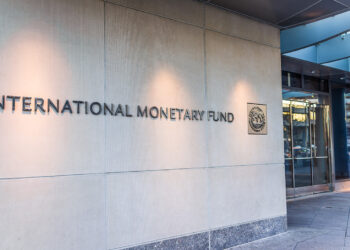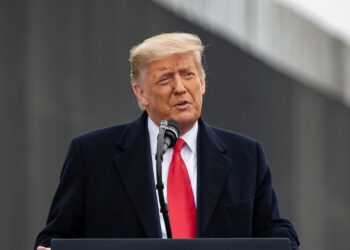The reaching influence of geopolitical tensions – ranging from economic sanctions, trade disruptions or armed conflict – can be compared to a game of “Whac-A-Mole”, according to Liberium investment strategist Joachim Klement.
For local investors, this has meant a constant challenge to determine how, not if, they will affect their portfolios.
“You think you’re not affected by it at all, particularly if you are in the sunny Australia side of the planet. But we can’t escape it no matter where we are,” Klement said in a recent Fidante podcast.
“Know that geopolitical risks, if they are big enough, can have a really significant influence all over the world, even if your region isn’t even affected by it.”
Despite this, Klement also warned against being too sensitive to every ripple of tension felt in markets, stating, “that is something that you have to learn as an investor; to ignore these kinds of short-term effects, and be able to differentiate when it really matters”.
Earlier this year, Australia’s sovereign wealth fund flagged that geopolitics is set to profoundly impact financial markets, macro-economics, and policy decisions. In its latest position paper, the Future Fund said this new landscape means a more volatile, challenging, and complex longer-term investment environment, one in which forward-looking returns will be more difficult to earn, warranting a re-evaluation of strategies.
Speaking to InvestorDaily, Brad Partridge, portfolio manager at Tura Capital, suggested that a consistent framework for evaluating companies across industries can help investors “separate noise from reality” when geopolitical risks escalate.
“A deep, fundamental understanding of the drivers of company earnings is critical in assessing whether geopolitical developments will have durable impacts,” Partridge said.
“We believe that over the longer-term, the only geopolitical events that matter are those that impact company earnings. Long-term investors should focus on changes to industry composition, company competitive advantages, and earnings variability caused by geopolitical events.”
Partridge observed that exposures to commoditised products such as steel, car batteries, and solar panels are particularly vulnerable to being materially affected as protectionist trade policies can distort industry structures and erode competitive advantages.
“When geopolitical risks rise, companies with limited competitive advantages in commoditised industries can see material reductions in earnings,” he said.
Meanwhile, ClearBridge Investments said it is keeping on the pulse of events that could change the movement of physical goods, including interruption to supply chains, flow of energy – particularly oil and natural gas – and food stuffs.
“This may impact the price of goods, both positively and negatively, which will have a flow on impact on inflation and potentially monetary and fiscal policy in different countries or regions,” Nick Langley, portfolio manager at ClearBridge, explained to InvestorDaily.
The sanctions on Russia post the Ukraine invasion, Langley continued, also demonstrate the risk of stranded assets and capital following a geopolitical event, highlighting the potential for capital controls or restrictions.
“In the long term, we will likely see different global frameworks and this is where investors should be spending time and effort to understand the implications for asset allocation,” he said.
“Investors should be cognisant of strategic versus tactical allocations or positions within their portfolios. This requires a level of risk management and clear investment time horizons and they consider the investment thesis associated with a position,” Langley said.
Three-step guide to assess portfolio risk
Broadly, Liberium’s Klement outlined a three-step approach when assessing the health of investment portfolios when confronted with geopolitical tensions.
“If I look at my investments, I know that the valuation of these investments is driven by the present value of future cash flows,” Klement said.
The first consideration is if a given geopolitical risk is likely to have an impact on inflation that spans more than 12 months.
“If so, I have to include that into my inflation numbers, and as a result, it changes my discount rate and maybe the rate at which I grow my earnings. That has a material impact on my investments and I can adjust my investment portfolio accordingly,” Klement said.
The second, he said, is whether the risk can have an impact on future growth, adding that the pendulum is capable of swinging towards both a positive or negative impact. Free trade agreements, for instance, can benefit export and global trade-oriented companies, although Klement conceded that most conflicts tend to hinder growth by increasing costs or limiting trade.
“We, in the UK, have had that experience over the last eight years with Brexit, where we’ve decided to reduce our ability to trade with our closest neighbours. The resulting negative implications are also reflected in these assets,” he said.
If neither of those two considerations are in place, Klement said the third element is a sentiment effect.
“This is where geopolitics is very cynical. Most geopolitical events do not really matter for investment portfolios,” he said.
The investment executive pointed to the ongoing conflict in Gaza as an example, noting that despite the humanitarian crisis, capital markets – including Israel’s – have remained largely unaffected.
“The end result is that people get scared, risk premiums rise, stock markets fall, bond markets rally, but within a month or two, everything settles back to normal again,” Klement said.
Emanuel Datt, chief investment officer of Datt Capital, agreed that many geopolitical risks will ultimately leave markets free to rebound.
“While initial market reactions can be negative, historical data suggests markets often recover, so understanding the potential for long-term economic impacts is crucial,” Datt said.
Utilising metrics such as geopolitical risk indexes and economic indicators, he explained, can also help gauge market sentiment and potential volatility spikes, aiding in distinguishing between transient and enduring impacts
“Assessing how specific sectors are affected can indicate whether impacts are likely to be short-lived or have lasting economic consequences,” Datt said.







